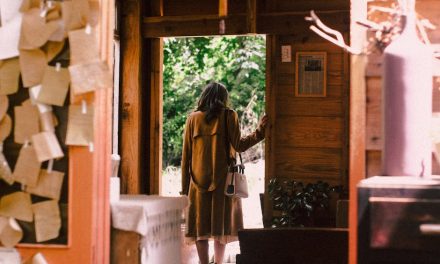Table of Contents
- Introduction
- The Importance of Curiosity in Personal Growth
- How Curiosity Can Lead to New Discoveries
- Cultivating Curiosity in Children
- The Role of Curiosity in Innovation
- Overcoming Fear of the Unknown Through Curiosity
- Nurturing Curiosity in the Workplace
- The Connection Between Curiosity and Creativity
- Using Curiosity as a Tool for Problem-Solving
- Embracing Uncertainty Through Curiosity
- Q&A
- Conclusion
Unleash your curiosity with Malin Leschly.
Introduction
Exploring Curiosity: An Interview with Malin Leschly is a fascinating discussion that delves into the importance of curiosity in personal and professional growth. In this interview, Malin Leschly shares insights and experiences that highlight the power of curiosity in driving innovation and creativity.
The Importance of Curiosity in Personal Growth
Curiosity is often described as the desire to learn or know about something new or unknown. It is a fundamental human trait that drives us to explore, discover, and grow. In the realm of personal development, curiosity plays a crucial role in expanding our knowledge, fostering creativity, and enhancing our overall well-being. To delve deeper into the importance of curiosity in personal growth, I had the privilege of interviewing Malin Leschly, a renowned psychologist and expert in the field of curiosity.
During our conversation, Malin emphasized the transformative power of curiosity in shaping our personal growth journey. She explained that curiosity serves as a catalyst for self-discovery and self-improvement, enabling individuals to break free from their comfort zones and embrace new experiences. According to Malin, curiosity encourages us to ask questions, seek answers, and challenge our existing beliefs and assumptions. By cultivating a curious mindset, we open ourselves up to a world of possibilities and opportunities for growth.
Malin also highlighted the role of curiosity in fostering resilience and adaptability. She noted that curious individuals are more likely to embrace change, navigate challenges, and bounce back from setbacks. By approaching life with a sense of wonder and openness, we can develop the resilience needed to overcome obstacles and thrive in the face of adversity. Curiosity allows us to view setbacks as learning opportunities and setbacks as stepping stones to personal growth.
Furthermore, Malin underscored the connection between curiosity and creativity. She explained that curiosity fuels our imagination, inspires innovation, and sparks new ideas. By exploring new interests, seeking out diverse perspectives, and engaging in novel experiences, we can tap into our creative potential and unleash our inner genius. Curiosity encourages us to think outside the box, experiment with different approaches, and push the boundaries of what is possible.
In addition to its impact on personal growth, curiosity also plays a vital role in fostering meaningful relationships and building a sense of community. Malin emphasized that curious individuals are more likely to connect with others, engage in meaningful conversations, and cultivate empathy and understanding. By approaching interactions with a sense of curiosity and openness, we can deepen our relationships, bridge cultural divides, and foster a sense of belonging and connection.
As our conversation drew to a close, Malin shared some practical tips for cultivating curiosity in our daily lives. She encouraged us to embrace uncertainty, ask questions, seek out new experiences, and challenge our assumptions. By adopting a curious mindset, we can embark on a journey of self-discovery, personal growth, and transformation.
In conclusion, curiosity is a powerful force that drives personal growth, fosters creativity, and enhances our overall well-being. By embracing curiosity and approaching life with a sense of wonder and openness, we can unlock our full potential, expand our horizons, and create a life filled with meaning and purpose. As Malin Leschly aptly put it, “Curiosity is the key to unlocking the door to personal growth and transformation.”
How Curiosity Can Lead to New Discoveries
Curiosity is a powerful force that drives individuals to explore, question, and discover. It is the spark that ignites innovation and leads to new breakthroughs in various fields. To delve deeper into the role of curiosity in driving new discoveries, I had the privilege of interviewing Malin Leschly, a renowned researcher in the field of neuroscience.
Leschly’s work focuses on understanding the neural mechanisms underlying curiosity and how it influences learning and memory. She believes that curiosity is a fundamental aspect of human nature that drives us to seek out new information and experiences. According to Leschly, curiosity is not just a fleeting emotion but a cognitive state that motivates us to explore the unknown and make sense of the world around us.
In her research, Leschly has found that curiosity activates the brain’s reward system, releasing dopamine and promoting learning and memory. This suggests that curiosity not only drives us to seek out new information but also enhances our ability to retain and apply that knowledge. By fostering curiosity in individuals, we can stimulate their desire to learn and encourage them to explore new ideas and concepts.
One of the key findings of Leschly’s research is that curiosity can lead to serendipitous discoveries. By encouraging individuals to follow their interests and explore new avenues of inquiry, we can uncover unexpected insights and connections that may have been overlooked. This highlights the importance of nurturing curiosity in both children and adults, as it can lead to new discoveries and innovations that have the potential to change the world.
Leschly also emphasizes the importance of creating an environment that fosters curiosity. By providing individuals with opportunities to ask questions, explore new ideas, and engage in hands-on learning experiences, we can cultivate a sense of wonder and curiosity that drives innovation and discovery. This can be achieved through educational programs, research initiatives, and collaborative projects that encourage individuals to think creatively and explore new possibilities.
In her own work, Leschly has seen firsthand how curiosity can lead to new discoveries. By asking questions and pursuing lines of inquiry that others may have overlooked, she has been able to uncover novel insights into the neural mechanisms underlying curiosity. This has not only advanced our understanding of how curiosity influences learning and memory but has also opened up new avenues for research and exploration.
As our conversation draws to a close, Leschly reflects on the importance of curiosity in driving new discoveries. She believes that curiosity is a powerful force that can inspire individuals to push the boundaries of knowledge and explore new frontiers. By fostering curiosity in ourselves and others, we can unlock the potential for innovation and discovery that lies within each of us.
In conclusion, curiosity plays a crucial role in driving new discoveries and innovations. By nurturing curiosity in individuals and creating an environment that encourages exploration and inquiry, we can unlock the potential for serendipitous discoveries that have the power to change the world. As Malin Leschly’s research has shown, curiosity is not just a fleeting emotion but a cognitive state that motivates us to seek out new information, make connections, and push the boundaries of knowledge. It is through curiosity that we can uncover new insights, make groundbreaking discoveries, and pave the way for a brighter future.
Cultivating Curiosity in Children
Curiosity is a fundamental aspect of human nature that drives us to explore, learn, and grow. It is a quality that is especially important to cultivate in children, as it lays the foundation for a lifetime of learning and discovery. To gain insight into how parents and educators can foster curiosity in children, I had the privilege of interviewing Malin Leschly, a renowned child psychologist and expert in early childhood development.
Leschly emphasized the importance of creating an environment that encourages curiosity from a young age. She explained that children are naturally curious and eager to learn about the world around them. As parents and educators, our role is to nurture and support this innate curiosity by providing opportunities for exploration and discovery. This can be done through hands-on activities, open-ended questions, and exposure to new experiences.
One of the key ways to cultivate curiosity in children is to encourage them to ask questions. Leschly stressed the importance of creating a safe and supportive space where children feel comfortable expressing their curiosity and seeking answers to their questions. By fostering a culture of inquiry, we can help children develop critical thinking skills and a thirst for knowledge that will serve them well throughout their lives.
In addition to encouraging questions, Leschly highlighted the importance of modeling curiosity as adults. Children learn by example, so it is essential for parents and educators to demonstrate a genuine interest in the world around them. By showing enthusiasm for learning and exploring new ideas, we can inspire children to do the same.
Leschly also emphasized the value of exposing children to a wide range of experiences and perspectives. By introducing them to different cultures, traditions, and ways of thinking, we can broaden their horizons and spark their curiosity about the world. This can be done through books, films, travel, and interactions with people from diverse backgrounds.
Another important aspect of cultivating curiosity in children is to provide them with opportunities for hands-on learning. Leschly explained that children learn best through direct experience, so it is essential to offer them opportunities to explore, experiment, and discover on their own. This can be as simple as taking nature walks, conducting science experiments, or engaging in creative play.
Leschly also highlighted the importance of fostering a growth mindset in children. By praising effort, perseverance, and resilience, rather than innate talent or intelligence, we can help children develop a positive attitude towards learning and a willingness to take on new challenges. This can help them develop the confidence and motivation to pursue their interests and explore new ideas.
In conclusion, cultivating curiosity in children is essential for their intellectual, emotional, and social development. By creating a supportive environment that encourages questions, models curiosity, exposes children to diverse experiences, and provides opportunities for hands-on learning, we can help children develop a lifelong love of learning and exploration. As parents and educators, we have the power to nurture and inspire the curious minds of the next generation.
The Role of Curiosity in Innovation

Curiosity is often seen as the driving force behind innovation. It is the desire to explore, question, and discover that leads individuals to push boundaries and think outside the box. To delve deeper into the role of curiosity in innovation, I had the opportunity to interview Malin Leschly, a renowned expert in the field of creativity and innovation.
Leschly has spent years studying the connection between curiosity and innovation, and her insights shed light on the importance of fostering a curious mindset in order to drive progress and change. According to Leschly, curiosity is not just a trait that some people possess and others do not. It is a skill that can be developed and honed through practice and intentional effort.
In our conversation, Leschly emphasized the importance of curiosity in the innovation process. She explained that curiosity is what drives individuals to ask questions, seek out new information, and challenge existing assumptions. Without curiosity, innovation would stagnate, as individuals would be content with the status quo and unwilling to explore new possibilities.
One of the key points that Leschly made during our interview was the idea that curiosity is a mindset that can be cultivated through exposure to new experiences and ideas. She stressed the importance of stepping outside of one’s comfort zone and embracing uncertainty in order to spark curiosity and fuel innovation.
Leschly also highlighted the role of curiosity in fostering collaboration and creativity within teams. She explained that when individuals are curious about each other’s perspectives and ideas, they are more likely to engage in open and honest dialogue, leading to the generation of innovative solutions.
Throughout our conversation, Leschly shared several strategies for cultivating curiosity in both individuals and teams. She emphasized the importance of asking open-ended questions, seeking out diverse perspectives, and encouraging a culture of experimentation and learning.
One of the key takeaways from my interview with Leschly was the idea that curiosity is not just a personal trait, but a mindset that can be nurtured and developed over time. By fostering a curious mindset within ourselves and our teams, we can unlock new possibilities and drive innovation forward.
In conclusion, curiosity plays a crucial role in driving innovation and progress. By cultivating a curious mindset and embracing uncertainty, individuals and teams can push boundaries, challenge assumptions, and explore new possibilities. As Malin Leschly aptly put it, “Curiosity is the spark that ignites innovation, and it is up to us to keep that spark alive.”
Overcoming Fear of the Unknown Through Curiosity
Curiosity is a powerful force that drives us to explore the unknown, to seek out new experiences, and to learn more about the world around us. It is a quality that can lead to great discoveries and breakthroughs, but it can also be a source of fear and anxiety for some people. In this article, we will explore how curiosity can help us overcome our fear of the unknown, and we will hear from Malin Leschly, a renowned psychologist and expert on curiosity.
Curiosity is a natural human trait that is present in all of us from a young age. It is what drives us to ask questions, to seek out new information, and to explore the world around us. However, for some people, curiosity can also be a source of fear. The unknown can be a scary place, and the thought of venturing into uncharted territory can be daunting. This fear of the unknown can hold us back from trying new things, from taking risks, and from fully experiencing life.
Malin Leschly believes that curiosity is a powerful tool for overcoming fear. In her research, she has found that curiosity can help us to approach the unknown with an open mind and a sense of wonder. By embracing our curiosity, we can learn to see the unknown as an opportunity for growth and discovery, rather than as something to be feared.
Leschly suggests that one way to overcome our fear of the unknown is to cultivate a sense of curiosity about the world around us. By asking questions, seeking out new experiences, and challenging ourselves to learn more about the things that scare us, we can begin to see the unknown as a place of possibility rather than of danger.
In her work with clients, Leschly has found that curiosity can be a powerful tool for overcoming anxiety and fear. By encouraging her clients to approach their fears with a sense of curiosity, she helps them to see that the unknown is not something to be feared, but something to be explored and understood.
Leschly believes that curiosity is a quality that can be cultivated and nurtured over time. By practicing curiosity in our daily lives, we can learn to approach the unknown with a sense of openness and wonder. This can help us to overcome our fear of the unknown and to embrace new experiences with confidence and excitement.
In her own life, Leschly has found that curiosity has been a driving force in her career as a psychologist. By approaching her work with a sense of curiosity and a willingness to explore new ideas, she has been able to help her clients overcome their fears and anxieties and to live more fulfilling lives.
In conclusion, curiosity is a powerful force that can help us to overcome our fear of the unknown. By cultivating a sense of curiosity about the world around us, we can learn to approach new experiences with an open mind and a sense of wonder. Malin Leschly’s work as a psychologist has shown that curiosity can be a powerful tool for overcoming anxiety and fear, and that by embracing our curiosity, we can learn to see the unknown as a place of possibility rather than of danger.
Nurturing Curiosity in the Workplace
Curiosity is often seen as a key trait for success in the workplace. It drives innovation, problem-solving, and continuous learning. To delve deeper into the importance of curiosity in the workplace, I had the opportunity to interview Malin Leschly, a seasoned HR professional with a passion for fostering curiosity in the workplace.
Leschly believes that curiosity is a fundamental trait that can drive individuals and organizations to new heights. She emphasizes the importance of creating a culture that encourages and nurtures curiosity among employees. According to Leschly, curiosity is not just about asking questions, but also about seeking out new perspectives, challenging assumptions, and being open to new ideas.
In her experience, Leschly has found that curiosity can lead to increased engagement and motivation among employees. When individuals are curious, they are more likely to take initiative, explore new opportunities, and push boundaries. This can result in a more dynamic and innovative workplace where employees are constantly learning and growing.
One of the key ways to nurture curiosity in the workplace, according to Leschly, is to create a safe and supportive environment where employees feel comfortable asking questions and sharing their ideas. This can be achieved through open communication, feedback mechanisms, and a culture of collaboration. By fostering a culture of curiosity, organizations can tap into the diverse perspectives and talents of their employees, leading to greater creativity and innovation.
Leschly also emphasizes the importance of leadership in nurturing curiosity in the workplace. Leaders play a crucial role in setting the tone for the organization and modeling curiosity through their own actions. By demonstrating a willingness to learn, explore new ideas, and challenge the status quo, leaders can inspire their teams to do the same.
In her own practice, Leschly has seen the impact of curiosity on organizational performance. By encouraging employees to ask questions, experiment, and take risks, organizations can create a culture of continuous improvement and innovation. This can lead to better decision-making, increased productivity, and a more engaged workforce.
Leschly also highlights the role of curiosity in driving personal and professional growth. By staying curious and open-minded, individuals can expand their knowledge, skills, and perspectives. This can lead to new opportunities, career advancement, and a more fulfilling work experience.
In conclusion, curiosity is a powerful trait that can drive success in the workplace. By fostering a culture of curiosity, organizations can tap into the full potential of their employees and drive innovation and growth. Leaders play a key role in nurturing curiosity and setting the tone for the organization. By encouraging employees to ask questions, explore new ideas, and challenge assumptions, organizations can create a dynamic and innovative workplace where individuals thrive. As Malin Leschly aptly puts it, “Curiosity is the key to unlocking new possibilities and driving continuous improvement.”
The Connection Between Curiosity and Creativity
Curiosity is often seen as the driving force behind creativity. The desire to explore, learn, and understand the world around us can lead to new ideas, innovations, and breakthroughs in various fields. To delve deeper into the connection between curiosity and creativity, I had the opportunity to interview Malin Leschly, a renowned psychologist and expert in the field of creativity.
During our conversation, Malin emphasized the importance of curiosity in fostering creativity. She explained that curiosity is the spark that ignites the creative process, prompting individuals to ask questions, seek out new information, and think outside the box. According to Malin, curiosity is what drives us to explore new possibilities, challenge conventional thinking, and push the boundaries of what is known and understood.
Malin also highlighted the role of curiosity in overcoming obstacles and setbacks in the creative process. She noted that curiosity can help individuals approach problems from different angles, experiment with new ideas, and find innovative solutions. By maintaining a curious mindset, creatives can navigate challenges with resilience, adaptability, and a willingness to learn and grow.
In addition to its role in problem-solving, curiosity can also fuel inspiration and motivation in the creative process. Malin explained that curiosity can lead to serendipitous discoveries, unexpected connections, and moments of insight that can spark new ideas and fuel creative breakthroughs. By staying curious and open-minded, creatives can tap into a wellspring of inspiration and creativity that can drive their work forward.
Malin also discussed the importance of cultivating curiosity as a habit or mindset. She emphasized the value of staying curious, asking questions, seeking out new experiences, and challenging assumptions. By fostering a curious mindset, individuals can cultivate a sense of wonder, exploration, and discovery that can fuel their creativity and drive their work to new heights.
When asked about practical strategies for cultivating curiosity, Malin suggested a few key approaches. She recommended setting aside time for exploration and experimentation, seeking out diverse perspectives and experiences, and embracing uncertainty and ambiguity. By actively engaging with the world around us and staying open to new ideas and possibilities, we can nurture our curiosity and unlock our creative potential.
In conclusion, my interview with Malin Leschly shed light on the powerful connection between curiosity and creativity. Curiosity serves as the fuel that drives the creative process, inspiring us to explore, learn, and innovate. By cultivating a curious mindset, we can tap into a wellspring of inspiration, motivation, and resilience that can propel our work forward and lead to new discoveries and breakthroughs. As we continue to explore the link between curiosity and creativity, we can unlock new possibilities, challenge conventional thinking, and push the boundaries of what is possible.
Using Curiosity as a Tool for Problem-Solving
Curiosity is a powerful tool that can be used to drive innovation and problem-solving. By asking questions, seeking out new information, and exploring different perspectives, individuals can uncover new solutions to complex problems. In a recent interview with Malin Leschly, a renowned expert in the field of curiosity, we delved into the ways in which curiosity can be harnessed as a tool for problem-solving.
Leschly emphasized the importance of cultivating a curious mindset in order to effectively tackle challenges. She explained that curiosity is not just about being interested in the world around us, but also about being open to new ideas and willing to explore different possibilities. By approaching problems with a sense of curiosity, individuals can break free from conventional thinking and discover innovative solutions.
One of the key benefits of using curiosity as a tool for problem-solving is that it encourages individuals to think outside the box. By asking questions and seeking out new information, individuals can challenge their assumptions and explore alternative perspectives. This can lead to breakthroughs in problem-solving and help individuals to overcome obstacles that may have seemed insurmountable.
Leschly also highlighted the role of curiosity in fostering creativity. By approaching problems with a sense of wonder and a willingness to explore new ideas, individuals can tap into their creative potential and come up with innovative solutions. Curiosity can inspire individuals to think creatively, experiment with new approaches, and push the boundaries of what is possible.
In addition to fostering creativity, curiosity can also help individuals to develop a growth mindset. By approaching problems with a sense of curiosity, individuals can view challenges as opportunities for learning and growth. This can help individuals to overcome setbacks, adapt to change, and develop resilience in the face of adversity.
Leschly emphasized the importance of cultivating curiosity in both personal and professional settings. By encouraging curiosity in the workplace, organizations can foster a culture of innovation and creativity. This can lead to increased productivity, improved problem-solving, and a more engaged and motivated workforce.
One of the key takeaways from our interview with Leschly is that curiosity is a mindset that can be cultivated and developed over time. By actively seeking out new experiences, asking questions, and exploring different perspectives, individuals can harness the power of curiosity to drive innovation and problem-solving.
In conclusion, curiosity is a powerful tool that can be used to tackle challenges, foster creativity, and develop a growth mindset. By approaching problems with a sense of wonder and a willingness to explore new ideas, individuals can uncover innovative solutions and overcome obstacles. Cultivating curiosity in both personal and professional settings can lead to increased productivity, improved problem-solving, and a more engaged and motivated workforce. As Malin Leschly aptly put it, “Curiosity is the key to unlocking our creative potential and driving innovation.”
Embracing Uncertainty Through Curiosity
Curiosity is a powerful force that drives us to explore the unknown, question the status quo, and seek out new experiences. It is a quality that can lead to innovation, creativity, and personal growth. In a world that is constantly changing and evolving, curiosity can be a valuable tool for navigating uncertainty and embracing the unknown.
To gain a deeper understanding of the role curiosity plays in embracing uncertainty, I had the opportunity to interview Malin Leschly, a renowned psychologist and expert in the field of curiosity. Leschly has spent years studying the impact of curiosity on human behavior and has conducted extensive research on how curiosity can help individuals thrive in uncertain situations.
During our conversation, Leschly emphasized the importance of curiosity in times of uncertainty. She explained that curiosity is not just about asking questions or seeking answers, but about approaching the unknown with an open mind and a willingness to explore new possibilities. According to Leschly, curiosity can help us adapt to change, overcome challenges, and find meaning in the midst of uncertainty.
One of the key insights that Leschly shared during our interview was the idea that curiosity is a mindset that can be cultivated and nurtured over time. She explained that curiosity is not something we are born with, but a skill that can be developed through practice and intention. By actively seeking out new experiences, asking questions, and challenging our assumptions, we can train our minds to be more curious and open to the unknown.
Leschly also highlighted the importance of curiosity in fostering resilience and adaptability. She explained that when we approach uncertainty with a curious mindset, we are more likely to see challenges as opportunities for growth and learning. By embracing uncertainty with a sense of wonder and curiosity, we can build the resilience needed to navigate difficult situations and emerge stronger on the other side.
In addition to its personal benefits, Leschly also discussed the broader societal implications of curiosity. She explained that curiosity is a driving force behind innovation and progress, as it encourages us to question the status quo and explore new possibilities. By fostering a culture of curiosity, organizations and communities can adapt to change more effectively and thrive in uncertain environments.
As our conversation came to a close, Leschly offered some practical tips for cultivating curiosity in our daily lives. She encouraged us to seek out new experiences, engage with diverse perspectives, and challenge our assumptions on a regular basis. By embracing uncertainty with a sense of curiosity and wonder, we can navigate the unknown with confidence and resilience.
In conclusion, curiosity is a powerful tool for embracing uncertainty and navigating the unknown. By approaching the world with a sense of wonder and openness, we can adapt to change, overcome challenges, and find meaning in the midst of uncertainty. As Malin Leschly’s research has shown, curiosity is not just a trait we are born with, but a skill that can be developed and nurtured over time. By cultivating a curious mindset and embracing the unknown with a sense of wonder, we can thrive in uncertain times and unlock our full potential.
Q&A
1. Who is Malin Leschly?
Malin Leschly is a researcher and expert in the field of curiosity.
2. What is the importance of curiosity in human development?
Curiosity is important for human development as it drives learning, exploration, and innovation.
3. How can parents and educators foster curiosity in children?
Parents and educators can foster curiosity in children by encouraging questions, providing opportunities for exploration, and supporting their interests.
4. What are some common misconceptions about curiosity?
Some common misconceptions about curiosity include that it is only relevant in childhood, or that it is a distraction from more important tasks.
5. How can curiosity be beneficial in the workplace?
Curiosity can be beneficial in the workplace by promoting creativity, problem-solving, and a willingness to learn and adapt.
6. What are some strategies for cultivating curiosity in adults?
Some strategies for cultivating curiosity in adults include seeking out new experiences, asking questions, and challenging assumptions.
7. How can curiosity help individuals navigate uncertainty and change?
Curiosity can help individuals navigate uncertainty and change by encouraging them to explore new possibilities, learn from their experiences, and adapt to new situations.
8. What role does curiosity play in scientific research?
Curiosity plays a crucial role in scientific research by driving inquiry, exploration, and discovery.
9. How can individuals overcome barriers to curiosity?
Individuals can overcome barriers to curiosity by challenging their fears, biases, and assumptions, and by actively seeking out new information and experiences.
Conclusion
In conclusion, the interview with Malin Leschly provided valuable insights into the importance of curiosity in personal and professional growth. Leschly’s experiences and perspectives highlighted the benefits of embracing curiosity and seeking out new opportunities for learning and development. This interview serves as a reminder of the power of curiosity in driving innovation and success.





